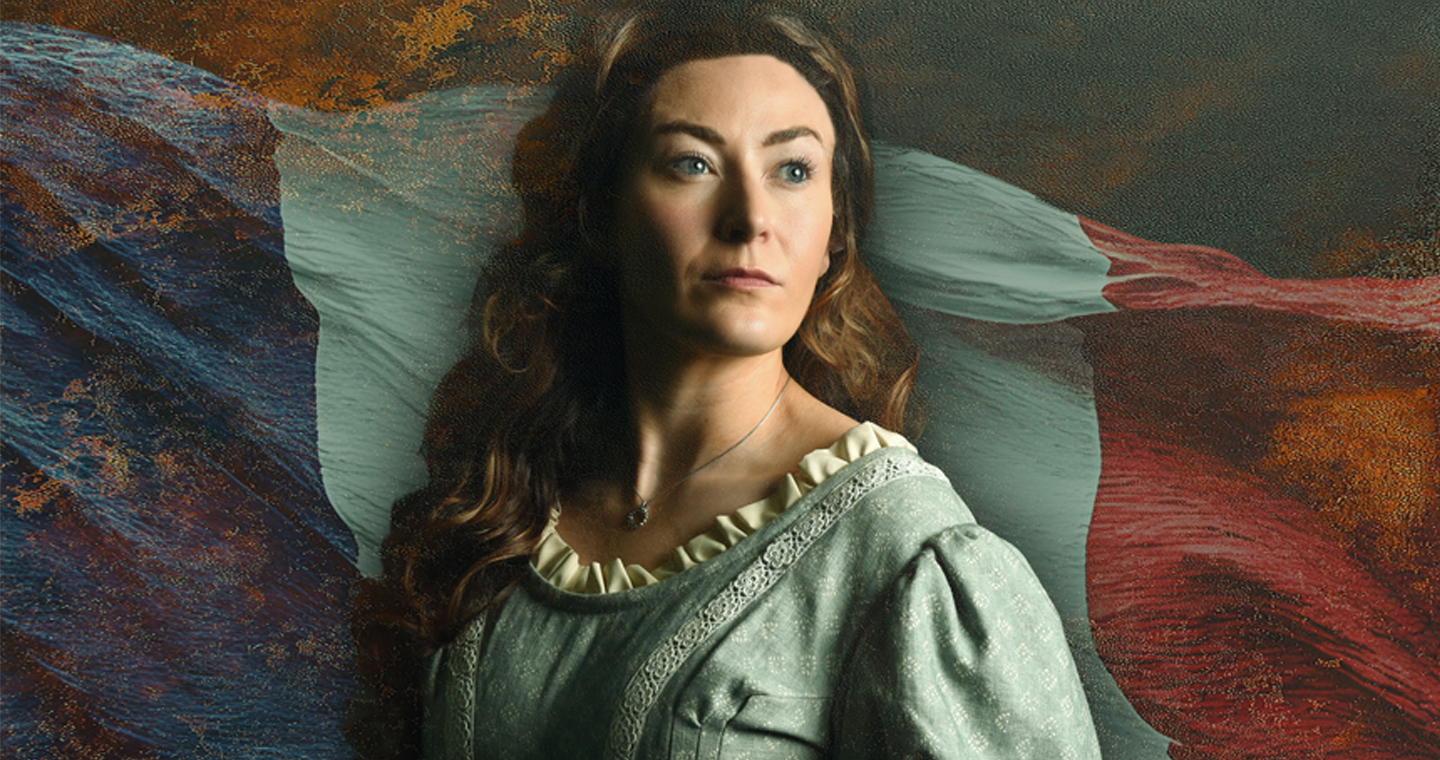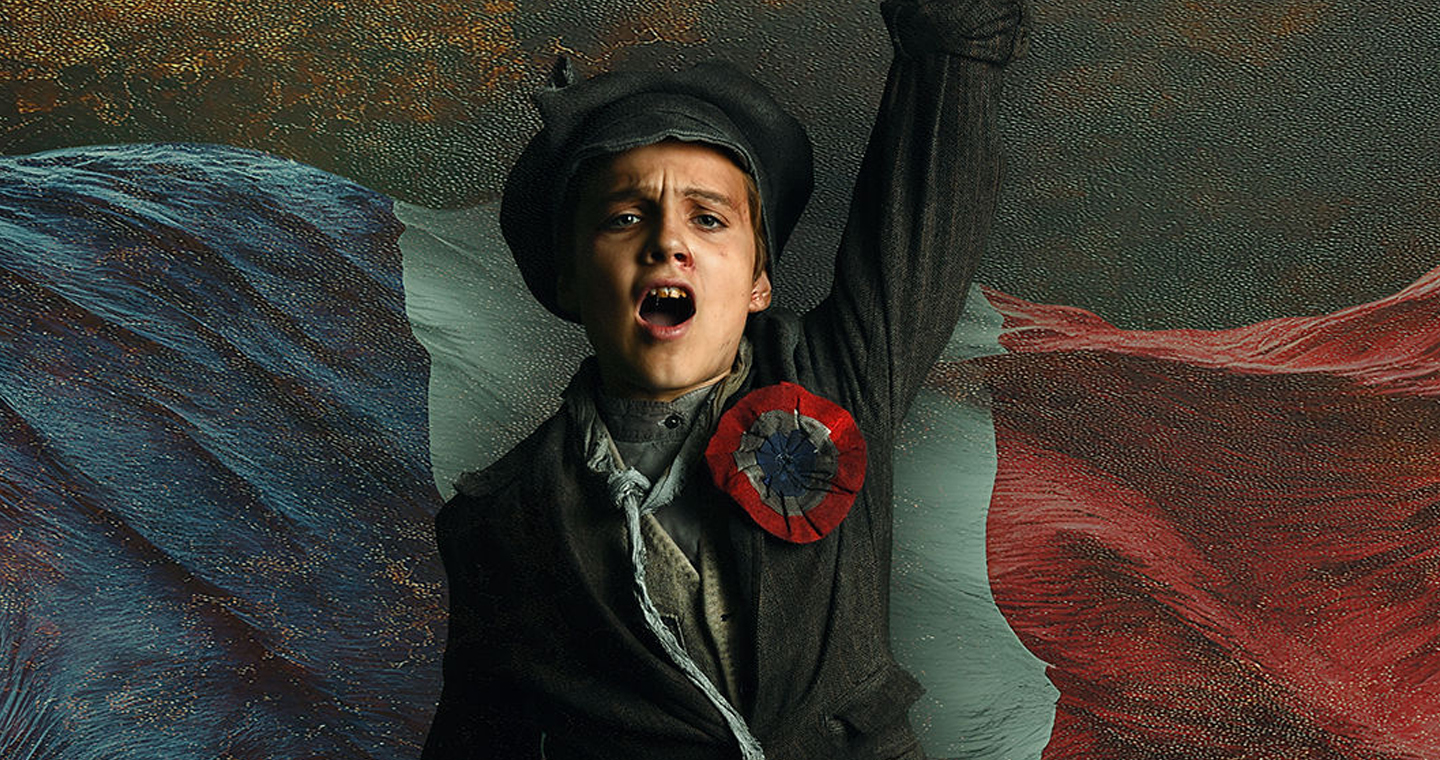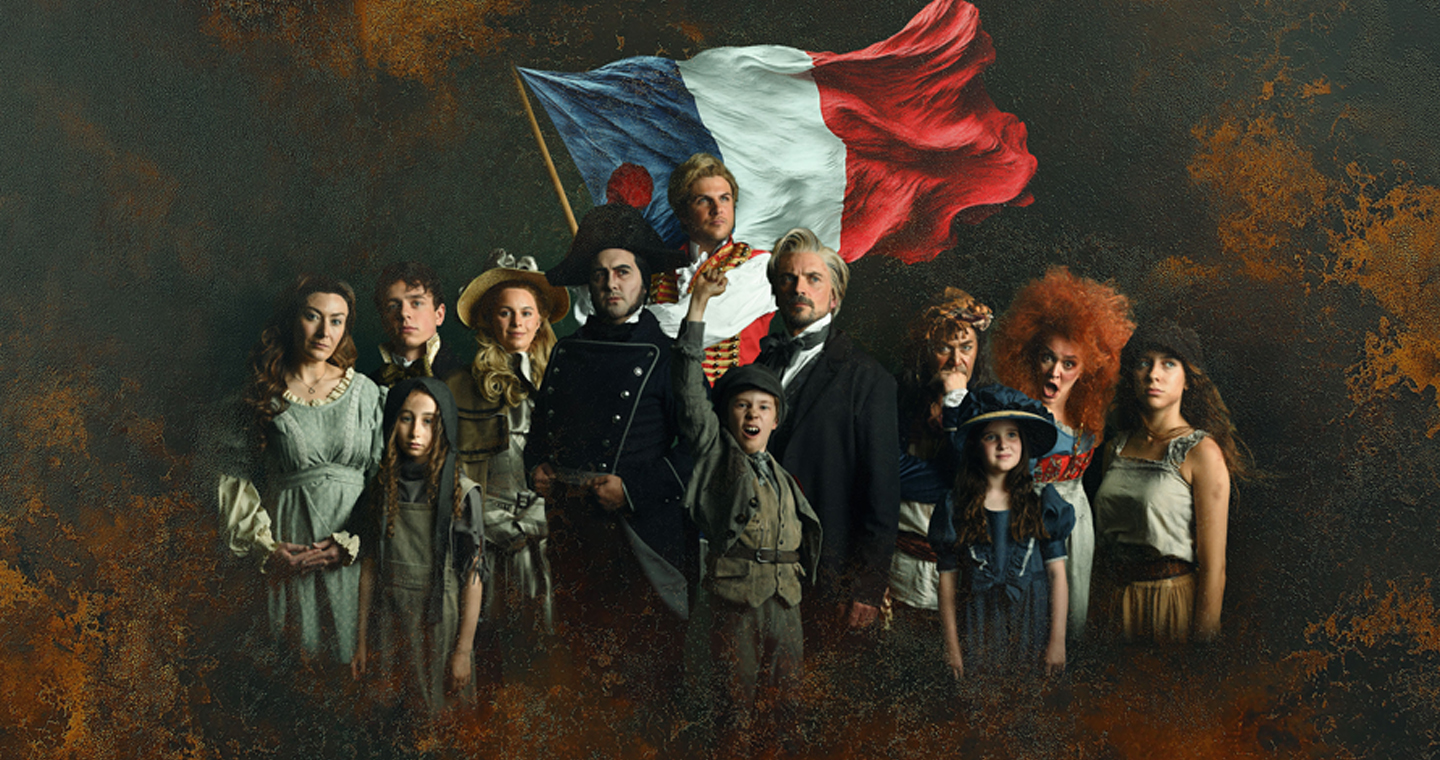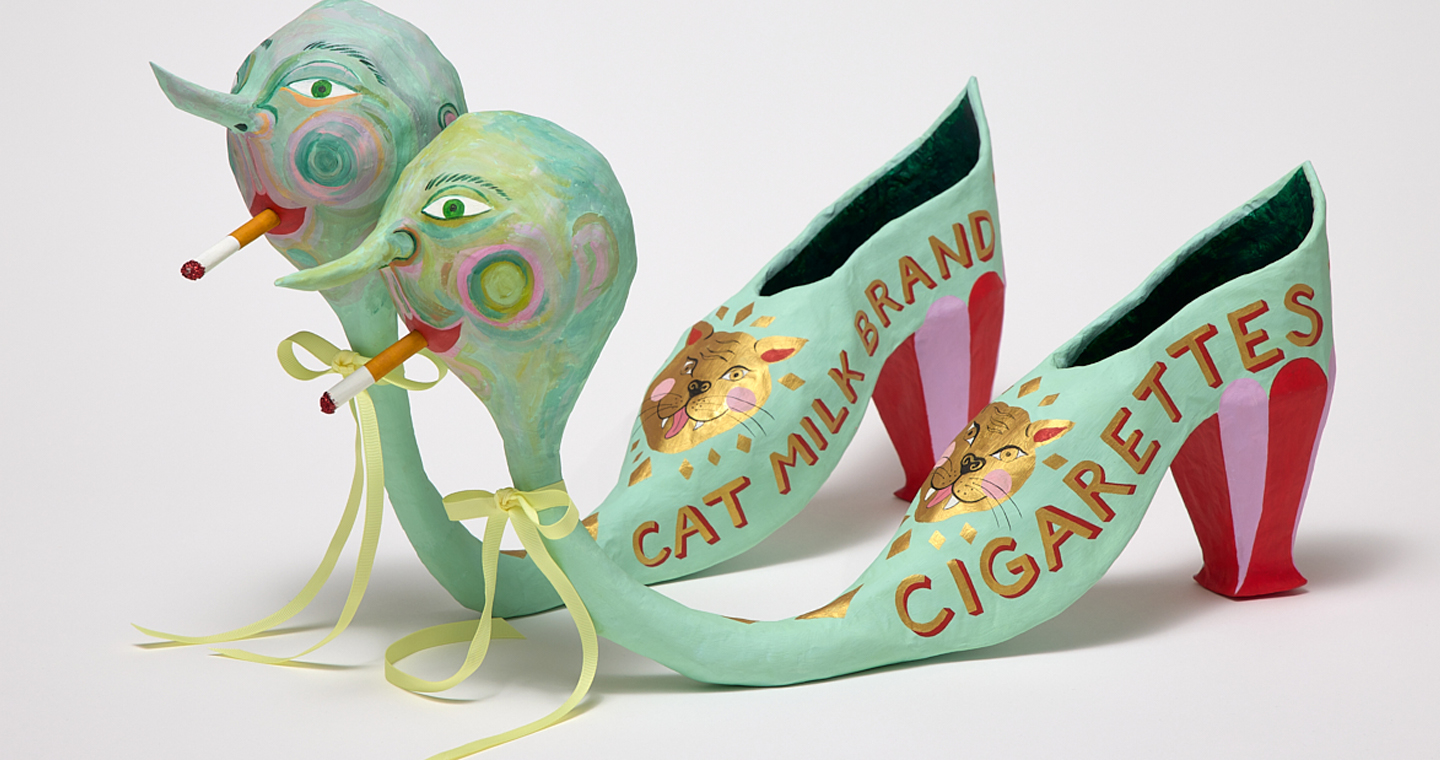“We’re bringing Les Misérables into the community as we celebrate both local theatre and the 40th anniversary of the legendary musical,” Keith Shepherd, Chairman of Brighton Theatre Group and lead producer, is telling me about this year’s lavish production in the beautiful Theatre Royal Brighton. ”It's just stunning, inside and out, and of course constructed in the early nineteenth century.”
He’s been a fan of the work for years, and several of the company’s past members have performed in the West End and current Arena Tour productions. BTG staged the School’s Edition back in 2013, but nobody ever expected they’d one day be presenting the full edition. Based upon an 1862 novel by Victor Hugo, Les Misérables has become a modern classic. Originally opening in Paris in 1980, it’s Cameron Mackintosh’s English-language adaptation for the West End that truly dazzled the world.
“By an extraordinary happening, I had a call in January last year from Music Theatre International, who are the rights holders for the show,” he explains. “They were looking for 11 amateur companies across the UK to lead on producing community-wide productions, to celebrate its 40th anniversary.” This is almost unheard of. The rights to stage the full version of the show had never been made available widely across the UK. “We were offered the opportunity to present it down here in Brighton at the Theatre Royal. So, naturally, I bit their hand off… right up to their elbow!”

Now BTG and its collaborating partners, Brighton and Hove Operatic Society, The Rattonians and Worthing Musical Theatre Company, are bringing this epic to Theatre Royal Brighton on Wed 13 Aug - Sat 23 Aug. “It is quite a big show. There are so many moving parts that it’s almost an operetta. We’ve got a huge cast to go with it.”
Shepherd says there’s a logic to inviting regional companies to participate in the celebrations for this remarkable musical’s 40th anniversary. While it is often referred to as “the world’s favourite”, its narrative highlights the power of communities working together.
There are numerous hurdles attached to creating something of this size, but he tells me he’s focused on making sure BTG delivers the very best production and one worthy of the trust placed in them.
“There was a challenge in casting. We had almost 500 people come for one show meeting.” He tells me over 400 people came for auditions, with around 23% of those eventually joining the cast.
There are also big considerations in how they should present the show. They can’t simply copy what has been produced in London. “We can take aspects from that, you know, in terms of historical accuracy. Obviously, we can't change anything musical or any of the dialogue.” There is still a lot of freedom in what can be presented and Shepherd says he has relished driving the whole process forward.
For those of you who haven’t seen the show (there’s soon a great opportunity to correct that oversight), Les Misérables tells the story of a peasant’s quest for redemption. Imprisoned for stealing food, he tries to start a new life after prison. Then he finds himself swept up in history.
There are some age-old themes of injustice, inequality and marginalisation. Alongside these are rich characters, expressing almost every aspect of humanity. Ahead lies a complex world of constant tests and moral choices.

“I remember when it was first staged 40 years ago and wasn’t critically acclaimed, but you instantly knew there was something special about it. Four decades on, and it’s the most recognisable and beloved musical out there.” It’s not just the universally recognisable quest for a better world and social commentary that have turned this show into a cultural phenomenon. There are some cracking songs, jaw-dropping spectacles and a message to the generous of heart.
“Les Misérables is based around conflict. Look at what's going on in the world. There’s also poverty in it. But the show is also about compassion. It's about getting the message through that love will prevail, despite all the losses.”
As a producer, his role is to organise everything except the onstage action. This can include working with venues, appointing the artistic team, arranging publicity, setting up ticketing and establishing budgets. “I do all of it... But we have professionals directing for us. Both have been with the company for years, and I wouldn’t entrust that to anybody else.”
BTG and its collaborators are amateur companies, and he acknowledges there’s a misconception around the label. “We aspire to put on shows which have excellent production values. The fact that people don't get paid to do it doesn't mean they're any less good.” He points out that many large-scale dramatic tours can see fatigue set in. “These people are paid to do a job. When you've got an amateur company doing it, they’re doing it for love and enjoyment.” Most of the people working on this version of Les Mis, including Shepherd, have jobs or vocations elsewhere. He suggests something magical happens when you get in front of the lights. For many, this is more than just a role.
“It's a hobby that's kind of grown arms and legs, and become the proverbial octopus…” His own journey with the company began in the late 80s, when his friend was performing in their shows. “One year they were doing Man of La Mancha, the story of Don Quixote, and they were short of men. She dragged me along to a rehearsal, insisting that I be in the show. I didn't want to do it, but I did. And it gets into the blood.” Soon he was participating in all the shows, becoming Vice Chairman of the company in 1990, and Chairman in 1994.” He’s spent most of his life guiding BTG, seeing it adopt professional standards, move into increasingly larger venues and welcome a balance of genders and age groups.
“These days you need to have a mindset about ability, and about how someone performs. In this day and age, there are specifics around characters and what they stand for, but we want to be open to everybody.”
The cast isn’t the only one putting their all into creating a stage show, there’s a small army of people behind the scenes working on costumes, hair and make-up, along with runners, stage managers and marketers. “Then there are those who do lights, sound or pyrotechnics. We also have prop makers who come in. There’s a vast amount to do. As many people as you see onstage, the same number will be supporting them behind the scenes.”

I point out that the Theatre Royal Brighton was built during the period in which the musical is set, which adds a certain resonance to proceedings. “It's quite sad, really… Brighton used to have 11 theatres. A lot of those are demolished, but the famous one, is The Hippodrome, which was a 2,000-seater with fly towers. There’s a whole other debate around how much it will cost to reopen it.”
He says the local theatre scene is doing OK at the moment but, like most of the arts, it’s particularly vulnerable to the economic climate, especially if a company is self-funded. “With any kind of recession or financial hardship, the first thing that goes is investment in the arts.” He says that a strong part of theatre is the sense of community that it generates. Although Brighton & Hove is a large city, the local theatre scene offers a small and friendly network.
The average Brighton Theatre Group show is always going to be on a large scale. Previous outings have seen Charlie And The Chocolate Factory, Chitty Chitty Bang Bang, Shrek and Oliver!. Anything that offers songs, colour and a bit of spectacle. “You have to select something that will attract an audience, from very young people to great-grandparents. But, it’s also great to do some of these more off-the-wall shows.” They staged Everybody's Talking About Jamie, which was massively successful, but it doesn’t offer the same mass appeal that will effortlessly fill huge venues.
Les Misérables certainly hits that mark. The next few weeks will see Shepherd marshalling a small army, practicing and refining until the production is ready to delight audiences. And when the run starts, the show becomes all-consuming. “It's such a joyous time. The show starts at 7.15pm, so you’ll be called to theatre for 3.30pm, because there’s vocal and physical warm-ups. You then go into costume, then for wigs and makeup. It’s like a show in itself, before you even open the curtain.” He says every show season almost divorces you from reality. You don’t care what is happening anywhere else; all that matters is the show.
“It is a fantasy world. It's very stressful but hugely rewarding. The biggest achievement is seeing a cast and audience come together to celebrate musical theatre.”
Let The People Sing – The UK amateur premiere of Les Misérables at Theatre Royal Brighton on Wed 13 Aug - Sat 23 Aug 2025, as part of the musical’s 40th anniversary celebrations.
Images by Miles Davies Photography

Stuart Rolt
Featured What's On
Stay in the loop
Keep up to date with latest news, guides and events with the SALT newsletter.






